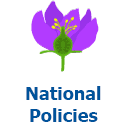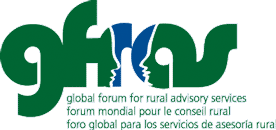 Every country has developed, formulated, and decreed national policies related to rural advisory services. Find some examples here. If you are looking for a national policy from a specific country, please use the search function, selecting the category “National policies” and the tag for the country.
Every country has developed, formulated, and decreed national policies related to rural advisory services. Find some examples here. If you are looking for a national policy from a specific country, please use the search function, selecting the category “National policies” and the tag for the country.
Agricultural officers and DANIDA agricultural experts were involved in developing and field-testing this manual, which is a project of the GoB agricultural departments. This guide was developed to help community members (both women and men) and community groups start and improve their technical understanding in the following areas:
1. Vegetable farming, by improving the method of selecting sites, species and crops, preparation of beds and planting pits for planting vegetables, and through successful farm management;
2. Rearing local chickens through improved semi-scavenging methods applying the techniques of using the improved hazol (brooding nest), early separation of chicks from the broody hen, using two to four layers of hygienic poultry shed and rearing chicks in cages or the multi-layer poultry shed, and ensuring balanced feeding and bio-security;
3. Fish farming in homestead base ponds using semi-intensive composite carp culture techniques incorporating the small indigenous species, which have high nutritional values.
This guide builds on the three previous versions of the Farm Forestry Field School (FFFS) manual prepared by the Intensified Social Forestry Project in Semi Arid Areas (ISFP) of Kenya. The manual was first developed in a workshop setting with the participation of Kenya Forest Service (KFS) staff members and JICA experts at the onset of the ISFP in 2004. FAO was involved in the workshop providing technical assistance to design the FFFS implementation process, facilitate the workshops and compile workshop outputs into the manual. The ISFP conducted the manual review twice through workshops. The KFS field staff members who carried out the FFFS presented the reality of the field and issues faced by farmers. Such experience sharing enriched the entire project implementation process and subsequently this publication. FAO was tasked to finalize the reviews and was asked to carry out an independent external review in 2007.
Facilitators’ Guide for Running a Farmer Field School
Written by Ingrid OliveiraAn adaptation for a post emergency recovery programme
This manual has been developed for use by facilitators. The reader should not treat it as a step-by-step guide. Rather, it is a useful resource meant to be read before starting the FFS and then used as a reference along the way. It is not subject specific but provides key operational aspects of the FFS process. Therefore, the facilitator should not use this manual as a stand alone resource, but should obtain the respective enterprise-specific content from other sources.
The Essential Nutrition Actions (ENA) framework was originally developed with the support of USAID, WHO and UNICEF, and has been implemented across Africa and Asia since 1997.11 The full ENA framework is an approach for managing the advocacy, planning and delivery of an integrated package of interventions to reach near universal coverage (>90%) in order to achieve public health impact. It promotes a “nutrition through the life cycle” approach to deliver the right services and messages to the right person at the right time using all relevant program platforms. It provides an operational framework for reducing “missed opportunities” both within12 and outside the health system for delivering nutrition messages and services.
Reference Materials on Key Practices: Community Workers
Written by Ingrid OliveiraThe Essential Nutrition Actions (ENA) framework was originally developed with the support of USAID, WHO and UNICEF, and has been implemented across Africa and Asia since 1997.11 The full ENA framework is an approach for managing the advocacy, planning and delivery of an integrated package of interventions to reach near universal coverage (>90%) in order to achieve public health impact.
It promotes a “nutrition through the life cycle” approach to deliver the right services and messages to the right person at the right time using all relevant program platforms. It provides an operational framework for reducing “missed opportunities” both within12 and outside the health system for delivering nutrition messages and services.
Reference Manual: Health Workers and Nutrition Managers
Written by Ingrid OliveiraThe Essential Nutrition Actions (ENA) framework was originally developed with the support of USAID, WHO and UNICEF, and has been implemented across Africa and Asia since 1997.11 The full ENA framework is an approach for managing the advocacy, planning and delivery of an integrated package of interventions to reach near universal coverage (>90%) in order to achieve public health impact.
It promotes a “nutrition through the life cycle” approach to deliver the right services and messages to the right person at the right time using all relevant program platforms. It provides an operational framework for reducing “missed opportunities” both within12 and outside the health system for delivering nutrition messages and services.
Designing for Behavior Change For Agriculture, Natural Resource Management, Health and Nutrition
Written by Ingrid OliveiraThe Designing for Behavior Change (DBC) Curriculum responds to community development program managers’ and planners’ need for a practical behavioral framework that strategically aids them in planning for maximum effectiveness. The curriculum is built on the original BEHAVE Framework, developed by AED and expanded on by members of CORE Group's Social and Behavior Change (SBC) Working Group and the Food Security and Nutrition Network SBC Task Force. The curriculum trains participants to apply the DBC Framework to improve development programming.
Applied Basic Agri-nutrition Resource Toolkit for Trainers
Written by Ingrid Oliveiraየተቀና የጤና ኤክስቴንሽን ሠራተኞች ማጠናከሪያ ሥልጠና - ሞዱል ሁለት፡ የሠልጣኞች ማኑዋል
Written by Ingrid Oliveiraይህ የሠልጣኞች መመሪያ የጤና ኤክስቴንሽን ሠራተኞችን የ10 ቀናት የተቀናጀ የማጠናከሪያ ሥልጠና ዝርዝር ያካትታል፡፡ መመሪያው የስልጠናውን ክፍለ ትምህርት ዕቅዶች፣ የሠልጣኞችን ማስታወሻ ነጥቦች፣ የመስክ አተገባበር መመሪያዎችንና ቁልፍ መልዕክቶችን ይዟል፡፡ ስልጠናው የጤና ኤክስቴንሽን ሠራተኞች በተዋረድ የማህበረሰብ አቀፍ የጤና መልዕክተኞችን እንዲያሰለጥኑ ጭምር ታስቦ የተዘጋጀ ነው፡፡
ይህ የአሠልጣኞች መመሪያ የጤና ኤክስቴንሽን ሠራተኞችን የ10 ቀናት የተቀናጀ የማጠናከሪያ ሥልጠና ዝርዝር ያካትታል፡፡ መመሪያው የስልጠናውን ክፍለ ጊዜ ዕቅዶች፣ የአሰልጣኞችን ማስታወሻ ነጥቦች፣ የመስክ አተገባበር መመሪያዎችንና ቁልፍ መልዕክቶችን ይዟል፡፡ ሥልጠናው የጤና ኤክስቴንሽን ሠራተኞች በተዋረድ የማህበረሰብ አቀፍ የጤና መልዕክተኞችን እንዲያሰለጥኑ ጭምር ታስቦ የተዘጋጀ ነው፡፡
More...
Linking Agriculture and Nutrition for Healthy and Strong Ethiopian Families
Written by Ingrid OliveiraAgriculture Development Agents Facilitator's Manual
This facilitators manual is developed for the use of the Master Trainers (MT) when training agricultural development agents (DA’s) on the importance of the contribution of the agricultural sector to improved nutritional outcomes to build healthy and strong Ethiopian families.
Applied Basic Agri-nutrition Resource Manual for Trainers
Written by Ingrid OliveiraThe Ministry of Public Health and Sanitation, in collaboration with nutrition partners, launched the SUN at a symposium in November 2012. This initiative aligns well with the Nutrition Action Plan recently drafted by USAID-KHCP that is being rolled out in phases across all Feed the Future (FTF) counties. It relies on effective collaboration with the Ministry of Agriculture and Ministry of Public Health and Sanitation by utilizing the services of the personnel within the existing structure to provide practical training on household nutrition and dietary diversity with communities upported by the project. The collaboration with the two ministries will draw from their existing expertise, the community strategy, and the country nutrition focus, and will utilize and strengthen already existing structures.
Nutrition Training Manual for Health and Agriculture Workers at Community Level in Ethiopia
Written by Ingrid OliveiraPurpose of this manual
- To equip health and agriculture workers at communities level with the knowledge, attitude and communication skills.
- Create awareness on nutrition component of agriculture-nutrition interventions that provides appropriate services, including well-tailored and comprehensive nutrition education, to address specific, local malnutrition issues.
- Describe the type of interventions that promote nutrition-sensitive agriculture and how to integrate them into their daily activities.
- Use the tools to counsel farmers on nutrition-sensitive agricultural interventions.
Nutrition Sensitive Agriculture Farmer Training
Written by Ingrid OliveiraTraining-of-Trainers Facilitator's Guide
This three-day workshop on nutrition aims to increase participants’ nutrition knowledge in the context of agricultural training. The main purpose is to promote adoption of key nutritional messages among farmers through the use of appropriate analogies. As such, this workshop trains lead farmers (LF) through a training-of-trainers (ToT) format. After the ToT, LFs will train other farmers who are members of their cooperatives on key nutrition topics.

